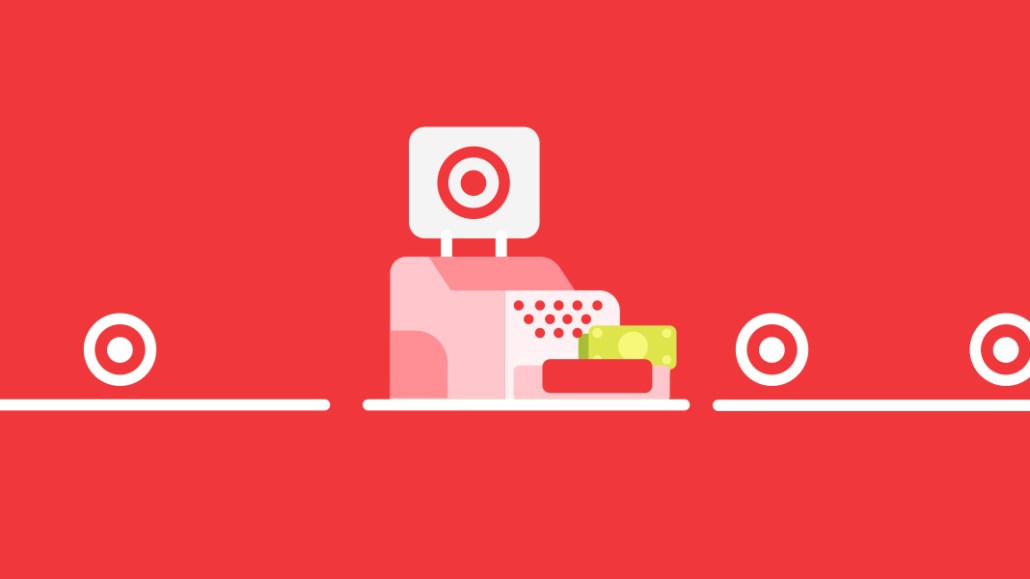Save 50% on a 3-month Digiday+ membership. Ends Dec 5.

Alongside disappointing holiday sales reports from Macy’s and JCPenney, Target is a bright spot among legacy retailers. The retailer reported 5.7 percent same-store sales growth for November and December — a jump from 3.4 percent for the same period in 2017. One contributor to that growth was in-store pickup for online orders, a way the retailer has held its own against increasing competition from Amazon.
The company handled 60 percent more items through online order pickup, “Drive Up” (an option where customers drive to designated delivery pickup points at Target locations) and ship from store compared to last year, chief operating officer John Mulligan said in a company blog post Thursday. According to the company, digital sales growth of 29 percent in the November-December period was driven entirely by store-fulfilled digital sales, and based on 2018 results, Target is on track to grow digital sales for a fifth consecutive year.
Juozas Kaziukėnas, CEO of e-commerce research firm Marketplace Pulse, said Target’s store pickup options for online orders make sense for customers outside of U.S. major urban centers, where customers are accustomed to driving to stores to pick up items. Target’s online pickup services helped rushed holiday shoppers wanting to save time on their last-minute holiday purchases, he added.
“Target was one of the bigger winners last year — it’s a massive turnaround compared to where they were a couple of years ago,” said Kaziukėnas. “Most of these people are driving to the store anyway; picking up [at the store] is super convenient because it meshes the advantages of picking up something in the store and buying online.”
Store pickup lets legacy retailers like Target repurpose physical stores into fulfillment and delivery hubs. Neil Saunders, managing director of GlobalData Retail, said store pickup reduces the burden of a costly direct-to-consumer delivery business. It’s a service large retailers like Home Depot, Walmart and CVS have invested in as well. According to a recent Zebra Technologies poll of retailers, 86 percent of those surveyed felt “buy online, pickup in store” will soon become the default delivery method for customers.
“Fulfilling products bought online [in stores] is so much more cost effective than delivering it to homes,” he said. “It’s helped [Target] drive sales but it’s also helped them protect their bottom line.”
Despite the appeal, “buy online, pickup in store” also has its risks. As stores become fulfillment centers for online orders, it could put pressure on inventory customers expect to be available on the shelves.
Ad position: web_incontent_pos1
“There are risks in getting it wrong — the volume now has become at such a level that you’ve got to make sure your [the inventory strategy] is really disciplined and that you have systems in place to ensure proper monitoring,” he said.
In 2018, Target put forward significant resources to modernize its delivery and in-store pickup operations. It grew the footprint of its subscription-based Shipt personalized shopper service to 46 states and also expanded curbside pickup to nearly 1,000 stores. The cost pressures behind these logistics enhancements seem to be affecting Target significantly in comparison to other large retailers, Digiday recently reported.
Subscribe to the Digiday Retail Briefing: A weekly email with news, analysis and research covering the modernization of retail and e-commerce.
More in Marketing

Ulta, Best Buy and Adidas dominate AI holiday shopping mentions
The brands that are seeing the biggest boost from this shift in consumer behavior are some of the biggest retailers.

U.K. retailer Boots leads brand efforts to invest in ad creative’s data layer
For media dollars to make an impact, brands need ad creative that actually hits. More CMOs are investing in pre- and post-flight measurement.
Ad position: web_bfu
